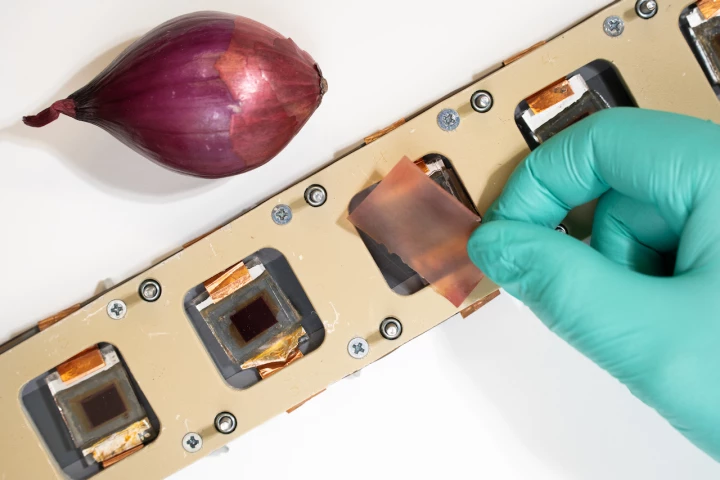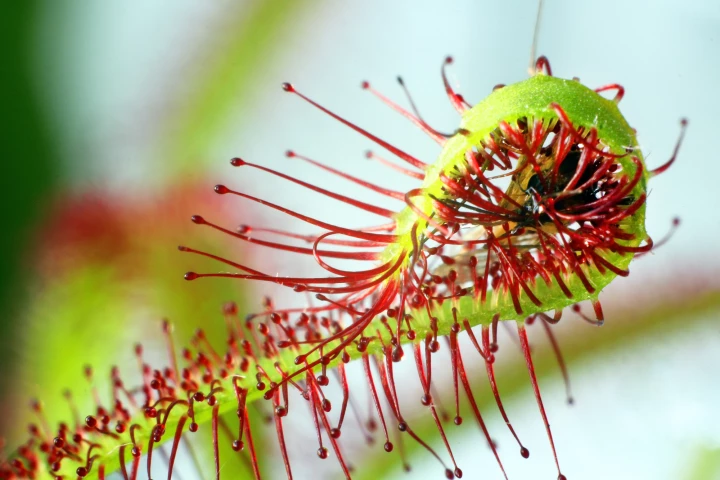Wageningen University
-
For the first time, scientists have identified ancient cannabis enzymes dating back millions of years – and discovered they were more efficient at producing the plant’s bioactive compounds like THC and CBD. The team then resurrected them in the lab.
-
Solar cells are subjected to a lot of harmful ultraviolet light, as they're typically placed for maximum sunlight exposure. A new eco-friendly coating could help protect them from those UV rays, and its active ingredient is extracted from onion skin.
-
When most people think of duckweed, they likely picture a green film growing across the surface of a stinky, stagnant slough. The protein-rich plant may soon be on your plate, however, as it's been approved for human consumption in Europe.
-
Inspired by a carnivorous plant, scientists have created a sticky spray that could kill pest insects as effectively as traditional toxic pesticides. And what's more, it's derived from plain ol' vegetable oil.
-
While it might run counter to conventional wisdom, if you are lactose intolerant, you might want to drink some milk every day to ward off diabetes. So says a new study that looked at a genetic variant involved in the effect.
-
Even though logging is prohibited in many of the world's forests, that doesn't stop some companies from logging in those areas anyways, then lying about the origins of the timber. Such groups may soon be foiled by the wood's chemical fingerprint.
-
The hooks in so-called "hook-and-loop" fastening materials (such as Velcro) are usually quite stiff, meaning they may damage other materials as they're pulled apart from them. Such is not the case, however, with a new mushroom-inspired alternative.
-
An international team of researchers has published a study detailing a grim outlook for billions of people, with rapidly rising temperatures to leave them outside the “climate niche” where humans have thrived for thousands of years.
-
Shipping fertilizer to colonies on Mars could be quite a hassle – it would be better if the colonists could grow crops using whatever's on hand. The continuation of an existing study now indicates that urine might in fact serve as a good fertilizer.
-
In use since at least the 4th century AD, dichroic glass displays different colors depending on how it's being viewed. Now, Dutch scientists have produced the effect in a material that can be used to create 3D-printed objects – and it's not just a novelty, as it could have practical applications.
-
If humans are ever going to colonize Mars, we need to make sure we can grow food locally. Now a team from Wageningen University & Research has found that earthworms might soon need a name change: these creatures crucial for making soil fertile, can thrive and reproduce in simulated Martian soil.
-
Malaria-carrying mosquitos can develop a tolerance for insecticides, plus there are environmental factors to consider. Now, solar-powered traps are showing great promise, in a pilot project that took place in Kenya.
Load More











